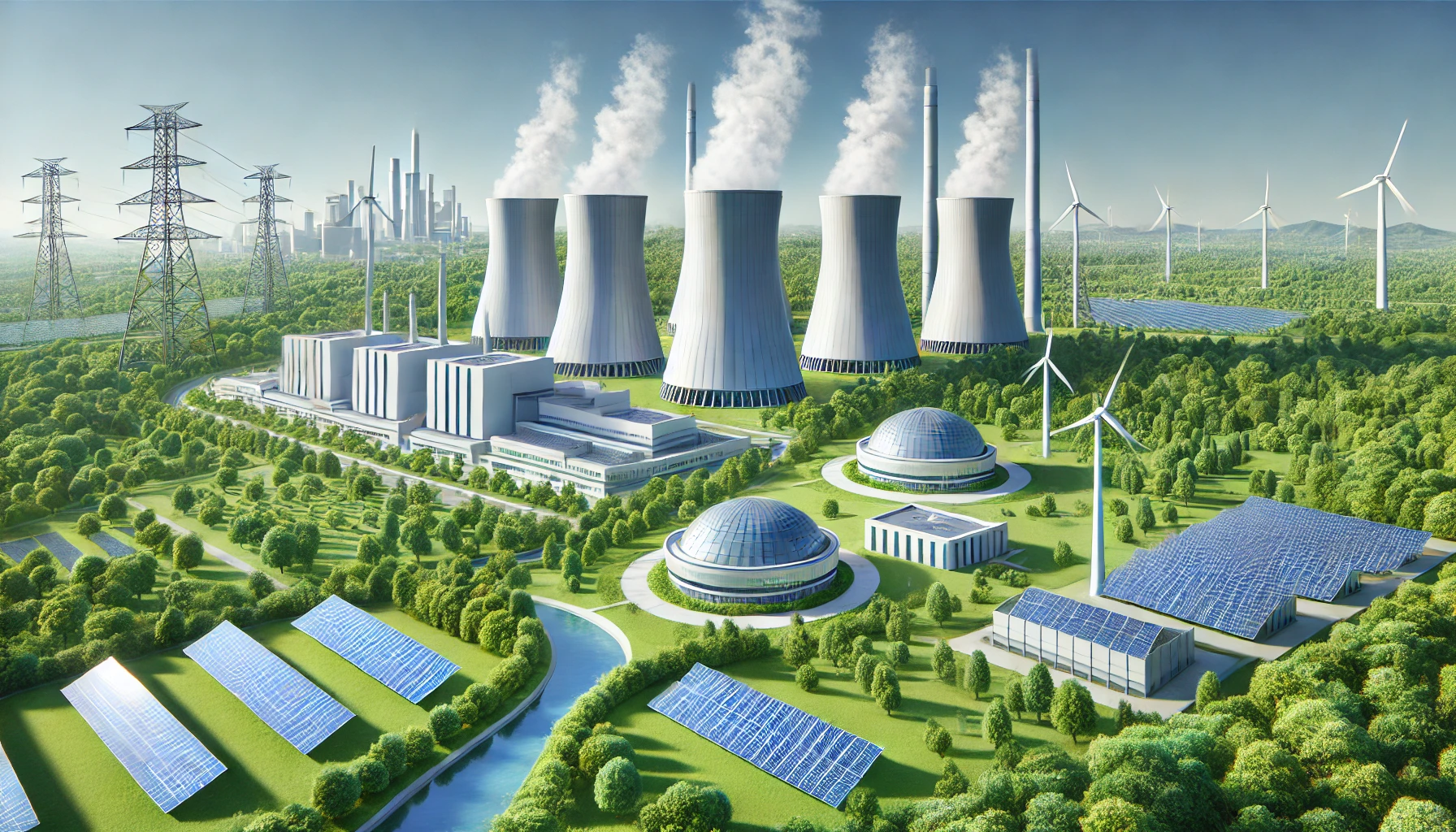
In the quest for net zero emissions, one energy source stands out for its potential to deliver consistent, large-scale, and low-carbon power: nuclear energy. As global temperatures rise and the effects of climate change become more pronounced, transitioning to sustainable energy sources is not just a priority but an urgent necessity. Here’s why nuclear power should be a key component of our strategy to achieve net zero emissions.
1. Low Carbon Emissions
Nuclear power plants produce minimal greenhouse gases compared to fossil fuel-based energy sources. The lifecycle emissions of nuclear energy, from uranium mining to waste disposal, are significantly lower than those of coal, oil, and natural gas. According to the Intergovernmental Panel on Climate Change (IPCC), nuclear power has lifecycle emissions comparable to wind and significantly lower than solar, making it an indispensable tool in reducing our carbon footprint.
2. High Energy Density and Reliability
One of the most compelling advantages of nuclear power is its energy density. A small amount of nuclear fuel can produce a massive amount of energy. This high energy density means that nuclear power plants can generate large amounts of electricity with a relatively small environmental footprint. Moreover, nuclear power is highly reliable; it provides a stable, continuous power supply regardless of weather conditions, unlike solar and wind energy, which are intermittent by nature.
3. Reducing Dependence on Fossil Fuels
Nuclear energy provides a viable pathway to reduce our dependence on fossil fuels, which are the primary contributors to global warming. By replacing coal and natural gas plants with nuclear reactors, we can significantly cut greenhouse gas emissions. This transition is essential for countries heavily reliant on fossil fuels for their energy needs.
4. Technological Advancements and Safety
Modern nuclear reactors are far safer and more efficient than their predecessors. Advances in technology have led to the development of Generation III and Generation IV reactors, which offer enhanced safety features, better fuel efficiency, and reduced waste production. Additionally, Small Modular Reactors (SMRs) are emerging as a promising option for expanding nuclear power in a more flexible and scalable manner, suitable for both large and small grids.
5. Economic Benefits and Job Creation
Investing in nuclear energy can also stimulate economic growth and create jobs. The construction and operation of nuclear power plants provide high-paying jobs and require a skilled workforce, contributing to the local economy. Moreover, the stable electricity prices from nuclear power can support industrial competitiveness and economic stability.
6. Complementing Renewable Energy
Nuclear energy can complement renewable energy sources such as wind and solar. While renewables are crucial for a sustainable future, their intermittent nature requires backup power to ensure a steady energy supply. Nuclear power, with its ability to provide continuous baseload power, can fill this gap, ensuring a reliable and resilient energy grid.
7. Waste Management and Sustainability
Contrary to common misconceptions, nuclear waste can be managed safely and effectively. Advances in waste treatment and storage technologies have significantly mitigated the risks associated with nuclear waste. Moreover, research into recycling spent fuel and developing advanced reactors capable of using waste as fuel offers promising solutions for sustainable nuclear energy.
To achieve net zero emissions, we must embrace a diverse mix of energy sources, and nuclear power must be a crucial part of this mix. Its low carbon emissions, high energy density, reliability, and ability to complement renewable energy sources make it an essential tool in the fight against climate change. By investing in nuclear technology and addressing public concerns through education and transparent safety measures, we can harness the full potential of nuclear power to create a sustainable, net-zero future.
The path to net zero is challenging, but with nuclear power in our arsenal, we can make significant strides toward a cleaner, greener planet.
